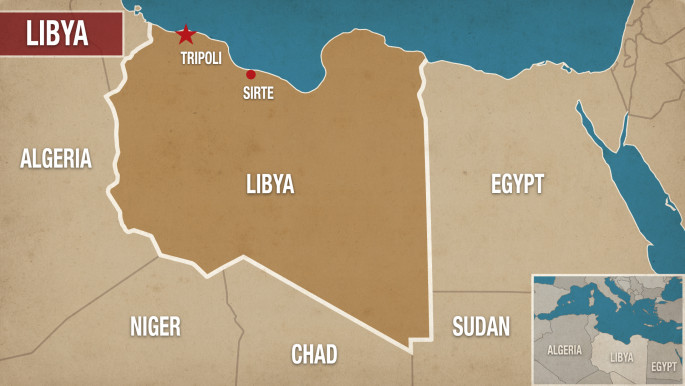UN says migrants in Libya subjected to 'extreme violence'
The United Nations called for the immediate release of the most vulnerable migrants held in Libya on Monday, many of whom have been subjected to appalling human rights abuses including "extreme violence."
The UN mission in Libya said thousands of migrants have been held arbitrarily for prolonged periods of time with no possibility to challenge the legality of their detention.
"Migrants continued to be subjected by smugglers, traffickers, members of armed groups and security forces to extreme violence," UN Secretary General Antonio Guterres said in a report, which also said migrants in Libya are subjected to torture, forced labour and rape. The report covered the period April to August.
Representatives of the UN mission in the North African country visited detention centres for unauthorised migrants in Gharyan, Tripoli, Misrata and Surman.
"The fundamental rights of migrants must be upheld at all times," Guterres said.
"I call on the Libyan authorities to immediately release the most vulnerable, in particular women at risk, pregnant women, and families with children, unaccompanied or separated children and persons with disabilities," he added.
Libya has plunged into chaos since the overthrow of long-time dictator Muammar Qaddafi in 2011, with dozens of armed factions filling the power vacuum. Things are so bad that Libya now has two competing governments, and migrants by the thousands have been fleeing to Europe.
'Threat of terrorism'
The report was released as the UN Security Council was due to meet later in the day for a meeting on Libya, and as seven African and European leaders met in Paris to talk about how to stem the flow of migrants into Europe from northern Africa in return for aid.
European countries have long sought to cut off clandestine immigration routes across the Mediterranean into the continent, especially from Libya.
In his report Guterres also said that during the period under study, all parties to the fighting in Libya committed human rights violations and violations of international law.
 |
"Armed groups on all sides continued to take hostages, to carry out unlawful killings and to use torture and forced disappearances, including of civilians, in particular women and other persons not involved in the fighting," the report said.
The latest developments come days after Britain announced it would give Libya £9 million ($12 million) in aid to help fight terrorism and ensure stability in the war-torn country.
The aid is an attempt to stabilise Libya in order to stem the threat of terrorism arriving on the UK's shores, Johnson said during his visit to the North African state.
"Libya is the front line for many challenges which left unchecked can pose problems for us in the UK - particularly illegal migration and the threat from terrorism," Boris Johnson said during a visit to the North African state.
"That's why it is so important that we work with the Libyan government and our partners to help bring stability to Libya, stopping it from becoming a fertile ground for terrorists, gun-runners and people traffickers in close proximity to Europe," he said, after meeting Libya's Prime Minister Fayez al-Serraj.
Tripoli is expected to collect some £4 million ($5.2 million) to support the removal of mines and improvised explosive devices (IEDs) and £2.75 million ($.3.6 million) to support women's participation in peace-making and rebuilding in Libya, ITV reported.
Another £1.29 million ($1.7 million) will be allocated to providing food, essential hygiene items and urgent health care needs for displaced people, while £1 million ($1.3 million) will be used to help rebuild the country's damaged infrastructure and restore basic public services.





 Follow the Middle East's top stories in English at The New Arab on Google News
Follow the Middle East's top stories in English at The New Arab on Google News

![Israeli forces ordered bombed Gaza's Jabalia, ordering residents to leave [Getty]](/sites/default/files/styles/image_330x185/public/2176418030.jpeg?h=a5f2f23a&itok=_YGZaP1z)
